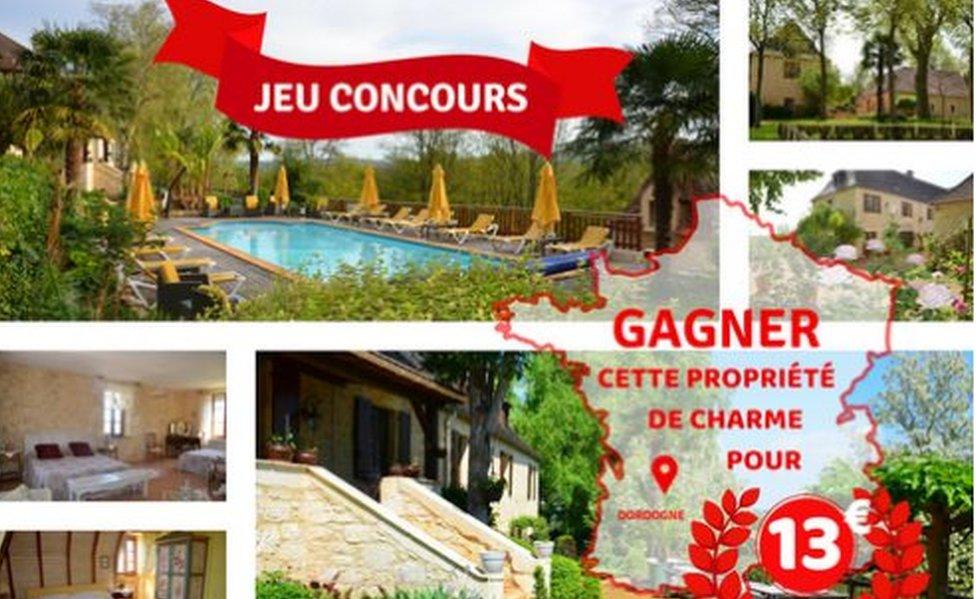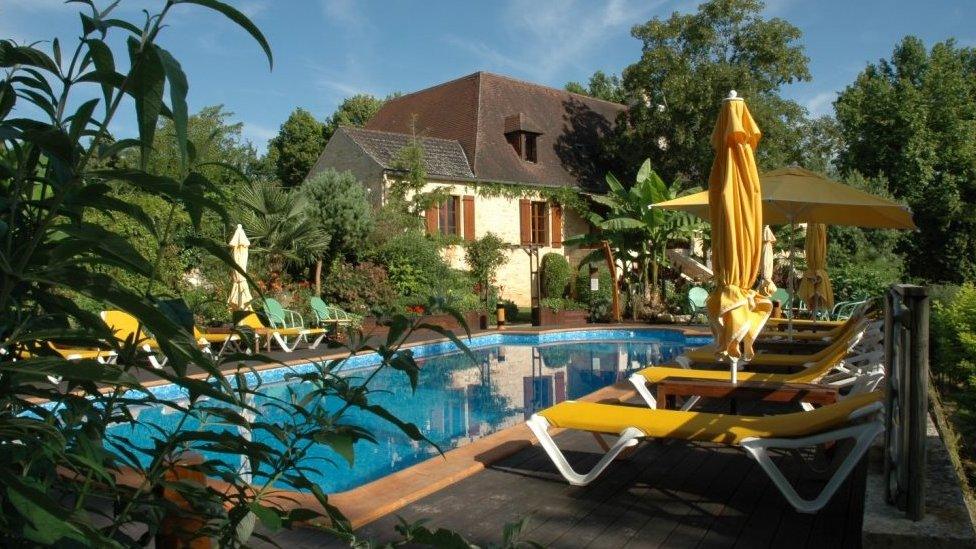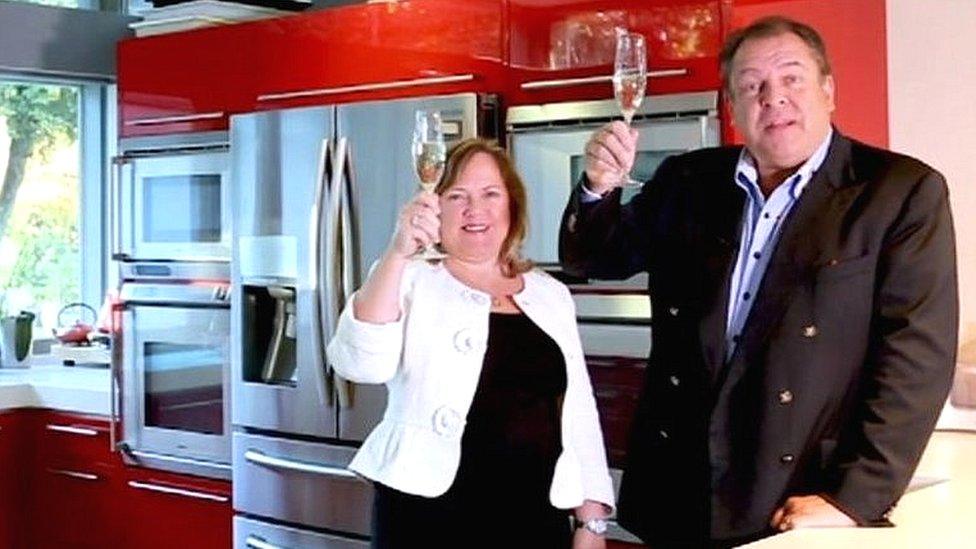French couple forced to halt online contest to sell villa
- Published

Initially the couple had tried to sell their guest house through estate agents but then tried an alternative route
For just €13 (£11; $14), you too could have entered an online quiz to win a sprawling guest house set in the idyllic Dordogne in south-west France.
The contest was the idea of Brigitte and Christophe Demassougne, who had initially put their property on sale with local estate agents.
But the competition has fallen foul of French online gaming regulator Arjel.
The couple have been given eight days to prove the quiz does not breach a ban on games of chance based on knowledge.
They were hoping to raise up to €2m and then award the house to the lucky winner in December.
Why did they start the quiz?
The couple have run the 450 sq m guest house on a seven-acre site at Cénac-et-Saint-Julien for the past 20 years. It includes an 18th Century villa, exterior buildings, tennis court and pool. Its value was estimated at around €1.5m.
Along with eight bedrooms in the house itself, there are two bed and breakfast gîtes and horse boxes.

The regulator has given the owners eight days to prove their quiz is legitimate
As they neared retirement the couple decided to put the property on the market and had the idea of launching an online contest.
"I decided that the day I wanted to sell my house, I would do it in this way. Legal fees are really expensive and people can't afford to buy these properties," Brigitte Demassougne told France Bleu radio as the contest began.
Their hope was for 150,000 people to play the quiz by 1 December, so they could raise €2m. They were counting on French interest, but also potential buyers from abroad. Local reports said there had been entries from the UK, Canada, Belgium and Australia.
The lush Dordogne valley has long been loved by UK tourists and thousands of British expatriates have moved there.
Since the start on 1 April, 20,000 people have taken part in the €13 contest, AFP reports.
Allow X content?
This article contains content provided by X. We ask for your permission before anything is loaded, as they may be using cookies and other technologies. You may want to read X’s cookie policy, external and privacy policy, external before accepting. To view this content choose ‘accept and continue’.

To enter, you had to answer two easy multiple-choice questions correctly, based on local geography, as well as guess the value of three objects, including an 18-carat gold 1kg bracelet.
The winner of the quiz would be the one with the two correct answers and the most accurate estimate for the three objects.
What did they do wrong?
The quiz, which was widely publicised in the local area, soon came to the notice of the online gaming regulator. According to a notice on the couple's site, external, the quiz has been suspended for eight days to allow them to prove their game "is not a game of chance and expertise".
Under a 2014 law, games of chance based on a player's expertise are banned. It says the sale of property is considered a lottery if an element of chance is involved and a participant has paid money to take part.
The couple have said they will pay everyone back if the regulator decides against them. Ms Demassougne said they would challenge the regulator in good faith, but she was "pessimistic" about their chances of success, she told AFP.
Holding competitions to sell your home is nothing new. Earlier this year a Canadian woman held a letter-writing contest for her home near Calgary.
A man in the Netherlands won a raffle last year when a book shop owner in Wales decided to give his customers the chance to win his store.
- Published4 February 2019
